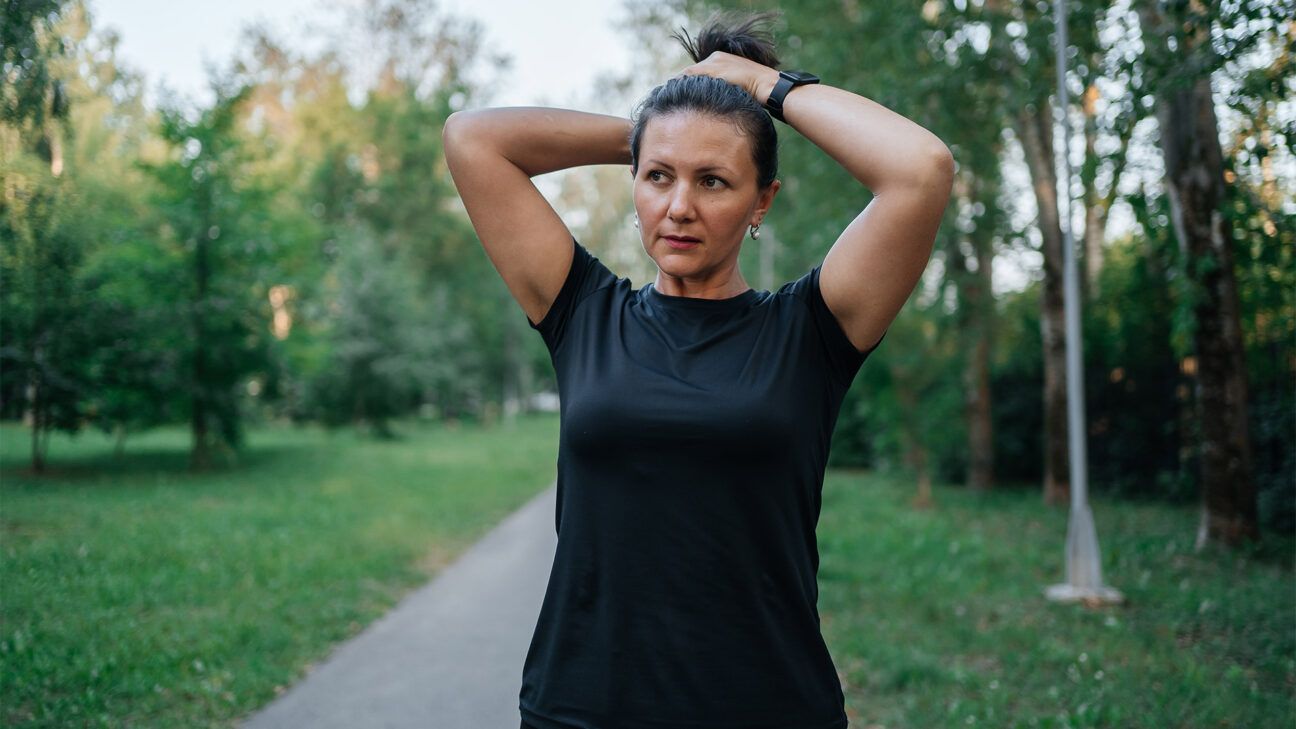
- A new study finds that short bouts of exercise can help boost your immune system.
- This is linked to the production of “natural killer” cells which are a type of white blood cell.
- The study is small, and experts say more research is needed.
New research has found that just 15 minutes of exercise can improve your immune function.
The findings, which are being presented at the American Physiology Summit in Long Beach, CA this week, discovered that short bursts of physical activity increase the production of natural killer (NK) cells, which are a type of white blood cell that fight infected and cancerous cells in the body.
The study has not yet been published in a peer-reviewed journal.
This isn’t the first study to link exercise to higher levels of NK cells in the bloodstream. Plus, the number of NK cells appears to increase mere minutes after engaging in physical activity.
The researchers say the new findings add to the growing pile of evidence that
“These new results suggest shorter bouts of exercise are enough to activate the immune system and increase the body’s natural killer cells in blood circulation,” Michael Fredericson, MD, a professor of Physical Medicine & Rehabilitation at Stanford Medicine, told Healthline.
Fredericson is not involved in the study.
The small study involved 10 participants between the ages of 18 and 40.
Each participant was instructed to ride a stationary bicycle for 30 minutes at moderate-level intensity.
The researchers drew blood samples from the participants before they started cycling and again at the 15 and 30-minute mark.
They found that levels of NK cells increased after 15 minutes of cycling, but did not continue to increase after 30 minutes of activity.
According to the researchers, this suggests that exercising for around 15 minutes substantially boosts NK cells, which may provide meaningful protection against diseases.
Unlike other aspects of the immune system, NK cells do not require previous exposure to a pathogen to identify and attack it.
“Natural Killer cells are white blood cells that help destroy infected and diseased cells, such as cancer cells,” explains Fredericson.
NK cells are constantly on the lookout for malignant cells and a lot of NK cells in the body may improve prognosis in various types of cancer. For example, one report found that the number of NK cells in the body was positively associated with survival in people with colorectal cancer.
According to Tracy Zaslow, MD, a board-certified pediatrician and pediatric and adult primary care sports medicine specialist at Cedars-Sinai Kerlan-Jobe Institute in Los Angeles, the body temperature rises during and right after exercise.
Most bacteria and viruses thrive at a normal body temperature and the heat can make it harder for them to survive, similarly to what happens with a fever.
Physical activity also reduces stress.
“Lower levels of stress hormones may provide some protection against illnesses,” says Zaslow.
This, in turn, can protect emotional well-being and decrease mental health issues like depression and anxiety.
“Stress and depression can lead to chronic inflammation impacting the body’s ability to fight infections,” Zaslow said.
Exercise improves
Finally,
The takeaway, according to the researchers, is that even short bursts of moderate-intensity exercise may come with great health benefits.
“Fifteen minutes of exercise is more doable for the general population and could motivate individuals to incorporate regular, brief exercise sessions into their daily routine, boosting their immune function,” says Fredericson.
Breaking your workouts into shorter bouts may be just as effective as engaging in longer exercise sessions, Fredericson added.
His advice: Any moderate-vigorous exercise will help boost your immune function and it’s important to find activities you enjoy and will be able to do regularly.
Some
Hiking, jogging, jumping rope, climbing stairs, and swimming are effective choices, too.
The goal is to feel challenged, so you’re breathing harder than you typically do, but not completely exhausted.
Keep in mind that there can be too much of a good thing, says Zaslow.
Prolonged bouts of intense exercise can suppress the immune system, and it’s crucial to let your body rest between workouts.
“The key is to create thoughtful exercise programs that enable regular physical activity while incorporating appropriate rest and recovery,” Zaslow said.
New research has found that just 15 minutes of exercise can improve your immune function. Short bursts of physical activity increase the production of natural killer (NK) cells, which are a type of white blood cell that fight infected and cancerous cells in the body. This may help provide better protection against infections and diseases.
